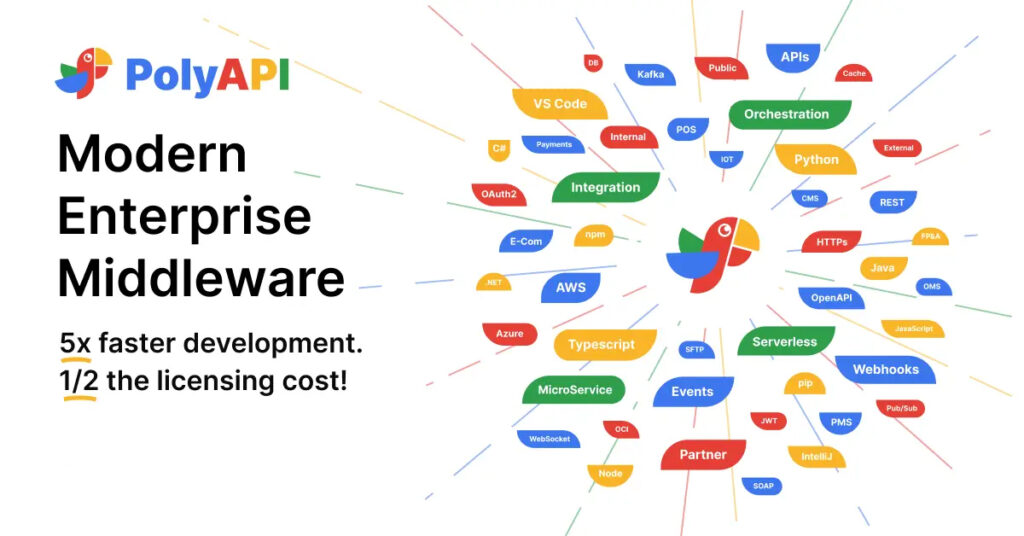Businesses constantly seek innovative solutions to enhance their operations and stay ahead of the competition. One of the most transformative advancements in recent years has been the advent of AI-powered API integrations. These cutting-edge technologies are revolutionizing the way companies interact with data, streamline processes, and deliver services, ultimately leading to a significant acceleration in business operations. According to a survey conducted by ProgrammableWeb, around 85% of enterprises have adopted API integration to improve communication processes and streamline workflows.
This insatiable need for data drives both AI companies and individual users towards a greater reliance on APIs and integrations for training new models and fine-tuning existing ones. Businesses in every vertical will likely need to use integrations and APIs with their data to fine-tune various AI models for specific tasks or industries. The era of ‘one-size-fits-all’ AI gives way to more specialized and customized solutions, achievable only through targeted data integrations.
Unleashing the Power of AI-Powered APIs
AI-powered APIs are the convergence of artificial intelligence (AI) and application programming interfaces (APIs), two technologies that have individually been driving forces in the digital transformation of businesses. By integrating AI capabilities into APIs, companies can leverage the power of machine learning, natural language processing, and other AI technologies to automate complex tasks, analyze vast amounts of data, and provide more personalized and efficient services.
PolyAPI is designed with the developer in mind. It offers seamless integration, connecting various services and systems effortlessly. This streamlines your development process and fosters collaboration among your team and development partners. PolyAPI lets you focus on what matters most by simplifying integration—building exceptional applications.
Enhanced Data Analysis and Decision Making
One of the critical benefits of AI-powered APIs is their ability to process and analyze large datasets quickly and accurately. This enables businesses to gain deeper insights into customer behavior, market trends, and operational efficiencies. With these insights, companies can make more informed decisions, identify new opportunities, and optimize their strategies for better outcomes.
Streamlined Processes and Automation
AI-powered APIs are also crucial in automating routine tasks and streamlining business processes. For example, APIs integrated with AI can automate customer service interactions through chatbots, process transactions faster, and even predict maintenance needs for equipment. This reduces the workload on human employees and increases the speed and accuracy of these tasks, leading to improved productivity and customer satisfaction.
One of the standout features of PolyAPI is its natural language interface. This interface lets you discover and learn APIs and events directly in your Integrated Development Environment (IDE). Add the PolyAPI extension to your IDE, and you’ll have access to a wealth of resources. Whether you’re looking for specific API documentation or trying to understand how an event stream works, PolyAPI’s natural language interface makes it easy and intuitive.
Personalization and Enhanced User Experiences
In today’s market, personalization is critical to customer engagement and retention. AI-powered APIs enable businesses to deliver highly personalized experiences by analyzing user data and preferences. Whether recommending products, customizing content, or tailoring services, these APIs ensure that customers receive relevant and meaningful interactions, enhancing their overall experience with the brand.
Real-World Applications and Success Stories
Many industries are already reaping the benefits of AI-powered API integrations. In the healthcare sector, APIs are used to analyze patient data for better diagnosis and treatment plans. In finance, they’re streamlining transactions and detecting fraudulent activities. Retailers are using them to personalize shopping experiences and optimize supply chains. The possibilities are endless, and the success stories are a testament to the transformative power of these technologies.
Poly’s ability to learn and adapt quickly allows retail development teams to incorporate APIs for personalized shopping carts or customer loyalty programs within minutes. This speed in implementation is not merely about cutting down development time; it translates to real-time benefits for consumers. A faster integration process can allow airlines to roll out essential features or updates in sync with real-world events. For instance, during peak shopping or unexpected supply line disruptions, retailers could swiftly deploy new functionalities to improve customer communication, enhance shipping information, or offer real-time alternative product options.
The Future of AI-Powered API Integrations
As AI and API technologies evolve, the potential for AI-powered API integrations is bound to expand exponentially. We anticipate a future where these integrations will become more sophisticated and accessible to businesses of all sizes. The seamless blend of AI’s analytical prowess with API’s connectivity will lead to more intelligent, more autonomous systems that anticipate user needs, adapt to changing market conditions, and deliver hyper-personalized experiences.
In the coming years, we can expect AI-powered APIs to transform industries by enabling real-time data analysis, predictive analytics, and intelligent automation. These advancements will empower businesses to make more informed decisions, streamline operations, and offer innovative services that set them apart.
Embracing the power of AI alongside API integrations is not just a strategic move for businesses looking to stay competitive; it’s an essential step toward embracing the future of digital innovation. As these technologies continue to shape the digital landscape, they will undoubtedly redefine what is possible in business and beyond.
